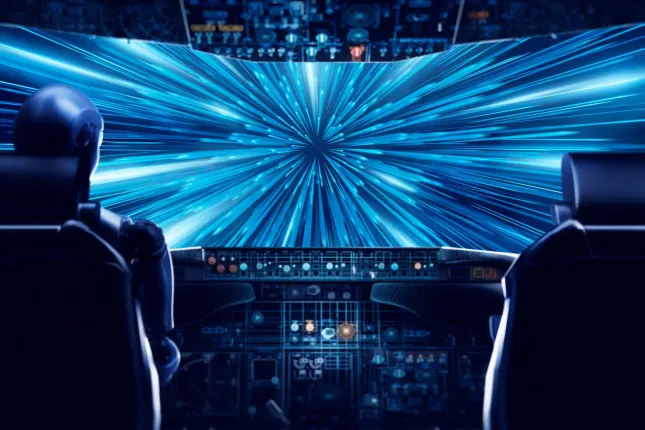Artificial Intelligence Becomes the New Space Pilot: Research and Future of Autonomous Spacecraft Control

Scientists from the global space community have taken a significant leap forward in developing autonomous management technologies by conducting innovative tests of artificial intelligence as the controller of spacecraft. During the experiments, it was demonstrated that modern language models, particularly ChatGPT, can effectively operate virtual spacecraft in various scenarios that simulate real space conditions. This research was carried out within the framework of the Kerbal Space Program Differential Game Challenge, based on the popular video game Kerbal Space Program, aiming to test navigation and control systems autonomy in complex space tasks. The competition scenarios included objectives such as intercepting targets, avoiding detection, and maneuvering into specific orbits. The main goal was to assess how well artificial intelligence can act independently, receiving only textual instructions and inputs without constant human intervention. Instead of traditional systems requiring extensive training and feedback loops, researchers adopted an approach centered around large language models (LLMs). They instructed ChatGPT to act as an autonomous agent managing the spacecraft. The model received text descriptions of the current status, the environment, and objectives, then provided recommendations on orientation, speed, and maneuvers. These suggestions were automatically converted into command signals that the simulated Kerbal Space Program spacecraft understood and executed. According to the published results in the Journal of Advances in Space Research, ChatGPT successfully performed navigation tasks without additional training or major fine-tuning, relying solely on a series of prompts and slight adjustments. The results showed that the model could carry out navigation and control missions at a level comparable to specialized algorithms. The top system in the competition was based on precise mathematical formulas, but the most striking finding was that ChatGPT could operate effectively without complex prior training. It is worth noting that the research was conducted before the release of the latest GPT-4 version, and authors emphasize that further improvements are necessary to reduce the risk of erroneous conclusions. Nonetheless, the potential for language models in autonomous spacecraft management is widely recognized as promising. In the broader context of space technology development, a recent milestone includes the launch of the first-ever quantum satellite computer into orbit, developed under the leadership of scientists from the University of Vienna. This device can perform complex calculations onboard without transmitting data back to Earth, which could drastically reduce response times and energy consumption in future missions. Such technological advancements pave the way for more reliable and efficient autonomous space systems.

